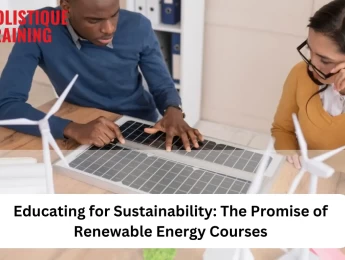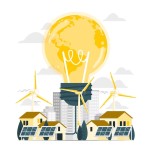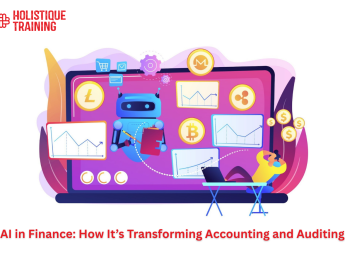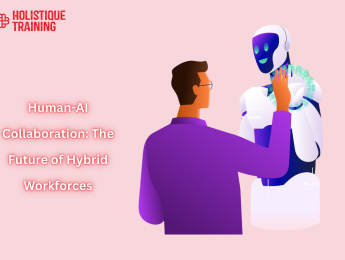Introduction
Renewable energy refers to energy sources that are naturally replenished on a human timescale, such as solar, wind, hydropower, biomass, and geothermal energy. Unlike fossil fuels, which are finite and contribute significantly to environmental pollution, renewable energy sources are sustainable and have a lower environmental impact. The shift towards renewable energy is essential for mitigating climate change, enhancing energy security, protecting the environment, and promoting economic growth and public health. By harnessing these sustainable energy sources, we can address some of the most pressing challenges of our time and pave the way for a cleaner, more sustainable future.
What is Renewable Energy and Why is it Important?
Renewable energy refers to energy sources that are naturally replenished on a human timescale. Unlike fossil fuels, which are finite and contribute significantly to environmental pollution, renewable energy sources are sustainable and have a lower environmental impact. The primary types of renewable energy include:
- Solar Energy: Harnessed from the sun using photovoltaic cells or solar thermal systems.
- Wind Energy: Generated by converting wind currents into electricity using wind turbines.
- Hydropower: Produced by capturing the energy of flowing water in rivers or dams.
- Biomass and Bioenergy: Derived from organic materials such as plant and animal waste.
- Geothermal Energy: Utilized from the heat stored beneath the Earth's surface.
The Importance of Renewable Energy in Today's World
Renewable energy plays a crucial role in addressing several key issues facing the world today:
- Climate Change Mitigation:
- Renewable energy sources produce little to no greenhouse gas emissions compared to fossil fuels. This significant reduction in emissions helps combat climate change and its associated impacts, such as extreme weather events and rising sea levels.
- Energy Security:
- By diversifying the energy supply and reducing dependency on imported fossil fuels, renewable energy enhances national and global energy security. It provides a stable and sustainable energy supply, less vulnerable to geopolitical conflicts and market volatility.
- Environmental Protection:
- Utilizing renewable energy reduces air and water pollution. For instance, solar and wind power generation do not produce air pollutants or hazardous waste, contributing to cleaner air and water and preserving ecosystems.
- Economic Growth and Job Creation:
- The renewable energy sector is a significant source of economic growth and job creation. The development, installation, and maintenance of renewable energy technologies create numerous jobs, contributing to economic stability and growth.
- Public Health Benefits:
- Reducing pollution from energy production improves public health by decreasing the incidence of respiratory and cardiovascular diseases. Cleaner air and water contribute to overall better health outcomes for communities.
Global Impact and Future Prospects
Renewable energy is essential for achieving sustainable development goals and ensuring a livable planet for future generations. The global transition to renewable energy is accelerating, driven by technological advancements, policy support, and growing environmental awareness. Key trends include:
- Technological Innovations:
- Advances in energy storage, grid integration, and smart technologies are enhancing the efficiency and reliability of renewable energy systems. Innovations like advanced batteries and smart grids are crucial for overcoming intermittency and integrating renewables into the energy mix.
- Policy and Regulatory Support:
- Governments worldwide are implementing policies and incentives to promote renewable energy adoption. These include tax credits, subsidies, renewable energy mandates, and carbon pricing mechanisms.
- Declining Costs:
- The cost of renewable energy technologies, particularly solar and wind, has decreased significantly over the past decade. Economies of scale, improved manufacturing processes, and competitive markets contribute to making renewables increasingly cost-competitive with fossil fuels.
- Corporate and Consumer Demand:
- Businesses and consumers are increasingly demanding cleaner energy sources. Corporations are committing to renewable energy targets, and consumers are opting for green energy options, driving market growth.
Renewable energy is not only a key solution to the pressing challenges of climate change and environmental degradation but also a driver of economic growth, energy security, and public health improvement. The continued expansion and innovation in the renewable energy sector hold the promise of a sustainable and prosperous future for all.
How Can One Choose the Right Renewable Energy Course?
Choosing the right renewable energy course involves considering several key factors to ensure that the program aligns with your educational background, career goals, and personal preferences. Here are some steps and criteria to guide your decision:
Factors to Consider
- Career Goals and Aspirations:
- Identify your long-term career objectives. Are you looking to enter the renewable energy industry as a technician, engineer, researcher, or policy maker? Different roles may require different levels of education and specialization.
- Educational Background:
- Assess your current level of education and qualifications. Some courses may require a background in science, technology, engineering, or mathematics (STEM), while others might be more accessible to those from different fields.
- Course Content and Specialization:
- Review the curriculum of the courses you are considering. Ensure that the topics covered match your interests and career goals. Some programs may offer specializations in areas such as solar energy, wind energy, energy policy, or sustainable energy management.
- Institution Reputation and Accreditation:
- Research the reputation and accreditation status of the institutions offering the courses. Accredited programs from reputable institutions are generally more recognized and respected by employers.
- Learning Format:
- Decide whether you prefer an online, on-campus, or hybrid learning format. Online courses offer flexibility, while on-campus programs might provide more hands-on experience and networking opportunities.
- Duration and Commitment:
- Consider the length of the program and the time commitment required. Short courses and certificate programs might be suitable for quick skill acquisition, while degree programs require a longer-term commitment.
- Cost and Funding Options:
- Evaluate the tuition fees and additional costs associated with the courses. Look into scholarships, grants, and financial aid options that can help finance your education.
- Practical Experience and Internships:
- Check if the program includes practical training, internships, or industry partnerships. Real-world experience is invaluable in the renewable energy sector.
- Reviews and Testimonials:
- Look for reviews and testimonials from alumni. Their experiences can provide insights into the quality of the program and its effectiveness in preparing students for careers in renewable energy.
Steps to Choose the Right Course
- Research Programs:
- Start by researching various renewable energy programs offered by universities, colleges, technical schools, and online platforms. Create a list of potential courses that interest you.
- Compare Curriculums:
- Compare the curricula of the shortlisted programs. Focus on the subjects taught, the balance between theoretical knowledge and practical skills, and the opportunities for hands-on training.
- Assess Admission Requirements:
- Review the admission requirements for each program. Ensure that you meet the prerequisites, such as prior education, work experience, or specific skills.
- Explore Faculty and Resources:
- Investigate the qualifications and expertise of the faculty members. Additionally, check if the institution offers resources such as laboratories, research facilities, and industry connections.
- Visit Campus or Attend Webinars:
- If possible, visit the campus or attend virtual webinars and information sessions. This can give you a feel for the institution and provide an opportunity to ask questions directly to faculty and current students.
- Seek Advice:
- Consult with career advisors, industry professionals, or academic mentors. They can offer valuable guidance and help you make an informed decision.
- Apply:
- Once you have made your choice, follow the application procedures for the program. Ensure that you meet all deadlines and provide the necessary documentation.
Personal Considerations
- Passion and Interest:
- Choose a course that genuinely interests you. Passion for the subject matter will sustain your motivation throughout your studies.
- Location:
- Consider the location of the institution if you are opting for an on-campus program. Proximity to renewable energy companies or resources can enhance your learning experience.
- Future Opportunities:
- Look into the job placement rates and career services offered by the institution. Programs with strong industry ties and good employment outcomes can provide a significant advantage after graduation.
By carefully evaluating these factors and following the steps outlined, you can choose a renewable energy course that best fits your needs and sets you on a path to a successful and fulfilling career in the renewable energy sector.
How Can Renewable Energy Courses Contribute to Sustainable Development Goals (SDGs)?
Renewable energy courses play a crucial role in advancing the Sustainable Development Goals (SDGs) established by the United Nations. These educational programs equip individuals with the knowledge and skills needed to implement sustainable energy solutions, which directly and indirectly contribute to several SDGs. Here’s how renewable energy courses can help achieve these goals:
SDG 7: Affordable and Clean Energy
- Quality Education and Training:
- Renewable energy courses provide education and training on clean energy technologies, promoting the use of affordable and sustainable energy sources such as solar, wind, hydro, and biomass.
- Graduates from these programs can innovate and implement cost-effective renewable energy solutions, increasing access to clean energy.
SDG 13: Climate Action
- Reducing Carbon Footprint:
- Educating individuals about renewable energy technologies and sustainable practices helps reduce reliance on fossil fuels, thereby decreasing greenhouse gas emissions.
- Courses often include climate science and environmental impact assessments, empowering students to develop strategies that mitigate climate change.
SDG 4: Quality Education
- Inclusive and Equitable Education:
- Renewable energy programs can be designed to be inclusive, offering opportunities to diverse populations, including women and marginalized groups, thus contributing to equitable quality education.
- Scholarships and financial aid for renewable energy courses ensure that education is accessible to students from various socio-economic backgrounds.
SDG 8: Decent Work and Economic Growth
- Job Creation:
- The renewable energy sector is a significant source of employment. By training a skilled workforce, renewable energy courses contribute to job creation in fields such as installation, maintenance, research, and policy-making.
- Entrepreneurship and innovation in renewable energy can spur economic growth and create new business opportunities.
SDG 9: Industry, Innovation, and Infrastructure
- Promoting Sustainable Industries:
- Courses on renewable energy technology and sustainable infrastructure support the development of green industries.
- Training in advanced technologies and innovative solutions helps build resilient and sustainable infrastructure.
SDG 11: Sustainable Cities and Communities
- Sustainable Urban Development:
- Education on integrating renewable energy into urban planning helps create sustainable cities and communities.
- Courses often cover topics like energy-efficient buildings, smart grids, and sustainable transportation systems, which are essential for urban sustainability.
SDG 12: Responsible Consumption and Production
- Sustainable Resource Management:
- Renewable energy education emphasizes sustainable consumption and production patterns, encouraging the efficient use of natural resources.
- Students learn to design and manage systems that minimize waste and reduce environmental impact.
SDG 17: Partnerships for the Goals
- Collaborative Efforts:
- Many renewable energy programs involve partnerships with industry, government, and non-profit organizations, fostering collaboration to achieve sustainable development.
- Internships, research projects, and joint initiatives with stakeholders enhance practical learning and real-world impact.
Table 1: Contribution of Renewable Energy Courses to Sustainable Development Goals
SDG | Contribution of Renewable Energy Courses |
SDG 7: Affordable and Clean Energy | - Renewable energy courses provide education and training on clean energy technologies, promoting the use of affordable and sustainable energy sources such as solar, wind, hydro, and biomass. <br> - Graduates can innovate and implement cost-effective renewable energy solutions, increasing access to clean energy. |
SDG 13: Climate Action | - Educating individuals about renewable energy technologies and sustainable practices reduces reliance on fossil fuels, thereby decreasing greenhouse gas emissions. <br> - Courses include climate science and environmental impact assessments, empowering students to develop strategies that mitigate climate change. |
SDG 4: Quality Education | - Renewable energy programs can be inclusive, offering opportunities to diverse populations, including women and marginalized groups, contributing to equitable quality education. <br> - Scholarships and financial aid ensure that education is accessible to students from various socio-economic backgrounds. |
SDG 8: Decent Work and Economic Growth | - Renewable energy sectors are significant sources of employment. <br> - Skilled workforce training contributes to job creation in installation, maintenance, research, and policy-making. <br> - Entrepreneurship and innovation in renewable energy spur economic growth and create new business opportunities. |
SDG 9: Industry, Innovation, and Infrastructure | - Renewable energy courses support the development of green industries. <br> - Training in advanced technologies and innovative solutions helps build resilient and sustainable infrastructure. |
SDG 11: Sustainable Cities and Communities | - Education on integrating renewable energy into urban planning helps create sustainable cities and communities. <br> - Courses cover topics like energy-efficient buildings, smart grids, and sustainable transportation systems, essential for urban sustainability. |
SDG 12: Responsible Consumption and Production | - Renewable energy education encourages sustainable consumption and production patterns, minimizing waste and reducing environmental impact. <br> - Students learn to design and manage systems that promote resource efficiency. |
SDG 17: Partnerships for the Goals | - Many renewable energy programs involve partnerships with industry, government, and non-profit organizations, fostering collaboration to achieve sustainable development. <br> - Internships, research projects, and joint initiatives with stakeholders enhance practical learning and real-world impact. |
Renewable energy courses are pivotal in driving progress towards the Sustainable Development Goals by equipping individuals with the necessary skills to implement and advocate for sustainable energy solutions. These educational programs not only foster innovation and economic growth but also ensure a more sustainable and equitable future by addressing climate change, promoting responsible consumption, and building resilient communities. Through education and training, renewable energy courses empower a new generation of professionals dedicated to creating a sustainable world.
What is the Future of Renewable Energy Education?
The future of renewable energy education is poised to be dynamic and transformative, driven by technological advancements, evolving industry needs, and a growing global commitment to sustainability. Here are key trends and predictions shaping the future of this field:
Technological Innovations
- Advanced Learning Technologies:
- Virtual and Augmented Reality (VR/AR): These technologies will play a significant role in providing immersive, hands-on training experiences, simulating real-world renewable energy systems, and conducting virtual field trips to renewable energy installations.
- Artificial Intelligence (AI) and Machine Learning: AI-driven personalized learning platforms will tailor educational content to individual student needs, optimizing learning efficiency and engagement.
- Online and Hybrid Learning:
- The expansion of online courses and degree programs will make renewable energy education more accessible globally. Hybrid models that combine online theoretical instruction with local, practical training sessions will become more prevalent.
- Digital Twins and Simulations:
- Digital twins—virtual replicas of physical systems—will be used extensively in renewable energy education to simulate and analyze the performance of renewable energy installations, providing students with real-time data and insights.
Curriculum and Pedagogical Shifts
- Interdisciplinary Integration:
- Future renewable energy programs will increasingly integrate disciplines such as engineering, environmental science, economics, and public policy, offering a holistic approach to sustainability education.
- Courses will focus on the broader implications of renewable energy, including social, economic, and environmental impacts, to prepare students for multidisciplinary challenges.
- Focus on Emerging Technologies:
- Curricula will continuously evolve to include the latest advancements in renewable energy technologies, such as next-generation solar cells, advanced battery storage, smart grids, and green hydrogen.
- Project-Based Learning:
- Emphasis will be placed on project-based and experiential learning, where students work on real-world projects, collaborate with industry partners, and participate in internships to gain practical experience.
Policy and Industry Trends
- Government and Policy Support:
- Increased governmental focus on renewable energy and sustainability will result in more funding and support for educational programs. Policies promoting renewable energy research and development will drive innovation in educational content.
- Industry Collaboration:
- Stronger partnerships between educational institutions and renewable energy companies will ensure that curricula are aligned with industry needs. These collaborations will also facilitate internship programs, research projects, and job placements.
- Professional Development and Lifelong Learning:
- As the renewable energy sector evolves, continuous professional development and lifelong learning opportunities will become essential. Educational institutions will offer micro-credentials, certifications, and modular courses to help professionals stay updated with industry trends and advancements.
Global and Social Impact
- Inclusive and Equitable Education:
- Efforts will be made to make renewable energy education more inclusive, reaching underserved and marginalized communities. Scholarships, online courses, and community-based programs will help bridge the education gap.
- Global Collaboration:
- Increased international collaboration will foster the exchange of knowledge, research, and best practices. Joint degree programs, student exchange initiatives, and global research networks will become more common.
- Focus on Sustainable Development Goals (SDGs):
- Renewable energy education will align more closely with the United Nations Sustainable Development Goals, emphasizing the role of renewable energy in achieving broader sustainability and climate action targets.
Future Opportunities
- Innovation Hubs and Incubators:
- Universities and colleges will establish innovation hubs and incubators to support student-led startups and research initiatives in renewable energy, fostering a culture of entrepreneurship and innovation.
- Community and Grassroots Engagement:
- Educational programs will increasingly involve community engagement and grassroots initiatives, encouraging students to work on local renewable energy projects that directly benefit their communities.
- Global Competitions and Challenges:
- Participation in international competitions and challenges focused on renewable energy solutions will provide students with platforms to showcase their innovations and collaborate with peers worldwide.
The future of renewable energy education is bright and full of potential. By embracing technological advancements, interdisciplinary approaches, and strong industry partnerships, educational institutions can prepare a new generation of leaders and innovators ready to tackle the challenges of sustainable energy. This transformative education will not only drive the renewable energy sector forward but also contribute significantly to global sustainability efforts and the achievement of the Sustainable Development Goals.
Conclusion
The future of renewable energy education is bright and transformative, driven by rapid technological advancements, evolving industry needs, and an increasing global commitment to sustainability. By integrating cutting-edge learning technologies, fostering interdisciplinary approaches, and strengthening collaborations with industry and government, educational institutions can equip the next generation with the skills and knowledge necessary to lead the transition to sustainable energy systems. This dynamic education sector not only addresses critical issues such as climate change, energy security, and economic growth but also plays a pivotal role in achieving the Sustainable Development Goals. As renewable energy continues to expand and innovate, so too will the opportunities for students and professionals dedicated to creating a sustainable and prosperous future for all.

























